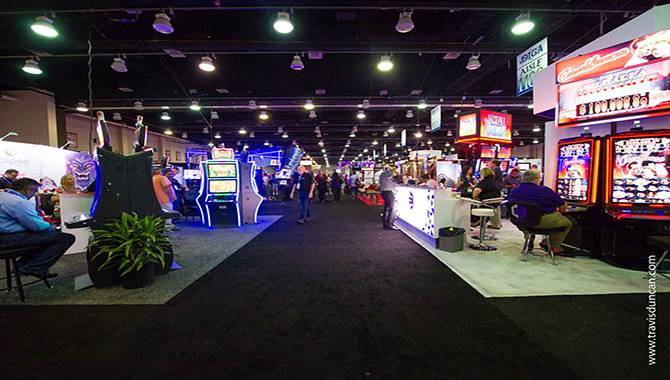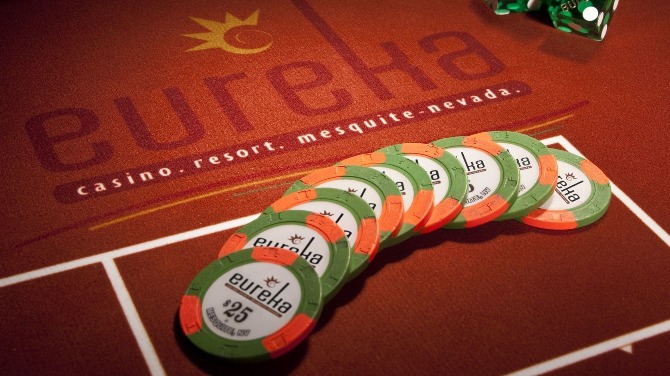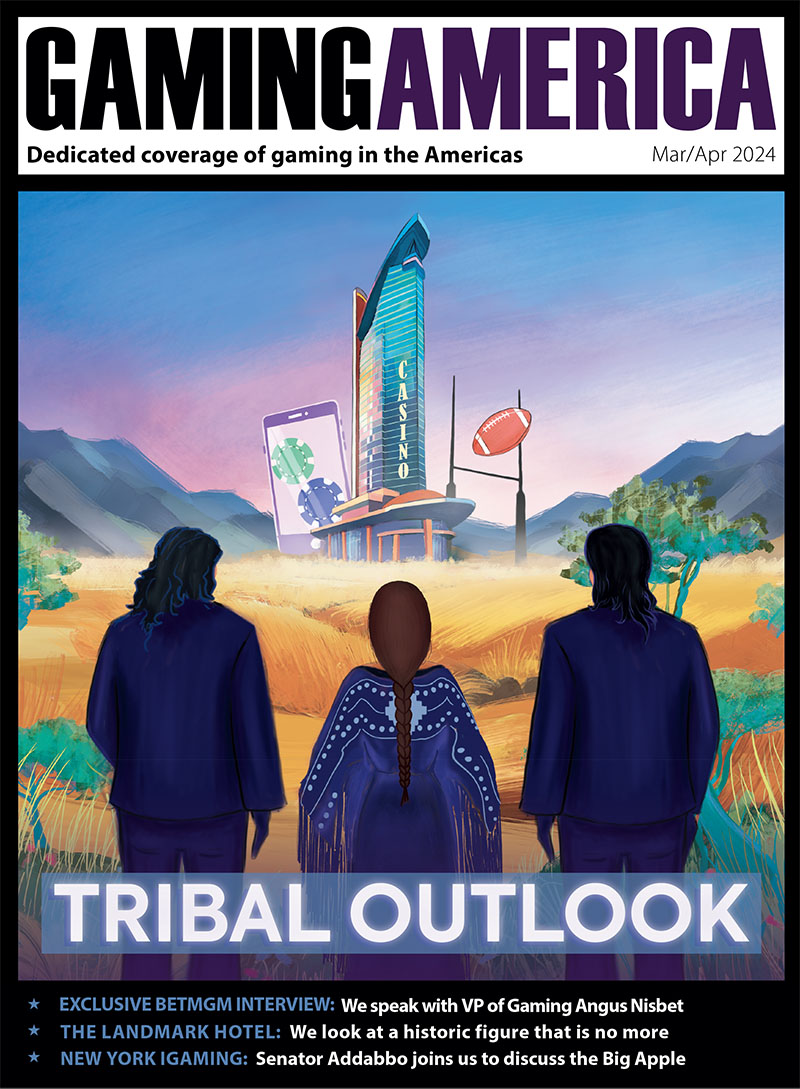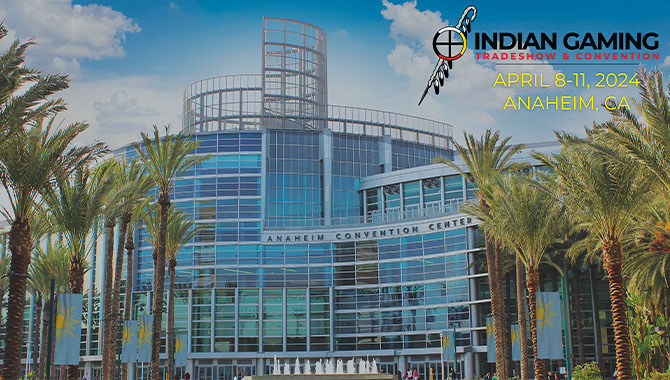
Moderator:
Loretta Tuell, Managing Principal, Tuell Law
Panellists:
Sheila Morago, Executive Director,
Oklahoma Indian Gaming Association
Steve Bodmer, General Counsel,
Pechanga Tribal Government
Michael Hoenig, General Counsel,
National Indian Gaming Commission
Chris Grove, Senior Consultant, Eilers & Krejcik Gaming
Sheila, can you please give us an update on how likely sports betting regulation is in Oklahoma and Arizona?
SM: In Oklahoma, they have run a sports betting bill for the last two sessions that would allow the tribes to offer sports betting. Oklahoma just got ball and dice last year, which means craps and roulette, but we don't call it that!
We have a lot of new folks in the legislature, so it was important to educate those new folks about what sports betting actually is and what it can bring. We call it more of
an amenity, which is probably not fair, but we have toned down the expectation in the state legislature.
They think it's going to save their budget and everyone is in a budget crisis. They want to make sure they bring it in and generate a lot of money and when you consider the 143 operations we have in Oklahoma, from WinStar to the smaller casinos, not everyone will be able to do sports betting. We have to be realistic about how that works.
We also have to make sure the streams don't cross. Tribal gaming has always been about the next big thing and offering more things on the floor, but our compacts come up for discussion in 2020. Those two discussions should be separate. Things will be contingent on whether the tribes agree to a new compact. If we don't agree on anything, it goes on for another 15 years.
We're just using this time to educate and we're going through what I call 'speed dating.' A lot of operators and suppliers want to come in and agree partnerships now. Who do people want to get married to? They're using this time very constructively to make the right decision.
With Arizona, they did have a go this year. There was a sports betting bill that didn't go anywhere. It was very contentious and the tribes did not come together on it at all. In my opinion, the bill really harmed the exclusivity arrangement.
It took care of the exclusivity issue by saying the tribes would have to have a license and run it, but they could also license other operators. It would just lead to in-fighting among the tribes. Arizona also has compact negotiations coming up in 2020. With the issues they
have right now, I don't think they're going to get there.
Steve, what needs to happen in California for regulation to be a possibility there?
SB: If sports betting is going to happen in California, and there certainly appears to be a moving demand for that conversation, you have to look at what the first step is, and that's that the constitution has to be amended. As a tribe, you should be concerned with that immediately, because you're only opening that up to lessen the exclusivity you currently have in gaming.
I'm not saying tribes have an exclusive right to sports betting; I'm saying tribes have the exclusive right to slot devices and percentage games. When you open this constitution up, you're going to be asking who else you can open this market up to. That is concerning for anybody.
You also have illegal card rooms in California right now, and that's not a surprise to anybody who's been following California issues. It's been a seven-to-eight-year battle for
us to have California enforce the law against them. When we now talk about giving card rooms an extra revenue stream, that is going to push back against tribes.
That's the first step. The second step is we now have to look at the compacts. What is that negotiation going to look like? What is the regulatory process to approve that? How do we ensure tribes are the primary beneficiary? Each tribe will need to assess what is best for them. When you start seeing MGM, Caesars and other brands become more ubiquitous throughout California, what is that going to do to your long-term model of protecting
tribal gaming in the state?
If you look at the online poker discussions from a few years ago, folks were saying they wanted three skins, with the casino, vendor and any other licensees. That caused a lot of obstruction and ultimately, the inability to get to the solution for internet poker in California. Do you need to make a market more competitive by making someone rent a license? Whether that's a card room or a tribe saying you can go through them, if they partner with an MGM, for example, the consumer will see MGM and not the tribe.
Michael, can you tell us about the role NIGC can play in regulating sports betting and protecting tribal compacts?
MH: There are three stages to all of this. First, do the tribes want to do this? Does it make sense for them to offer a sportsbook at their facility? That has nothing to do with
us and is purely up to them. Second, can we do it? We need to ask what the tribal compact is and see what exactly needs to be looked into. Third, how do we do it? There is an oversaturation of suppliers and vendors coming to tribes and trying to lock them into a deal.
I think that's where NIGC can be of some assistance. Indian gaming is not commercial gaming – it's a governmental activity. Tribes do want to make money from casinos, but it's needed for things like tribal programs and general welfare. Part of our job at NIGC is to make sure the revenue is predominantly going to the tribe.
If the agreement implicates any management, that has to be approved by the Chairman of NIGC, or else the agreement itself is void. There are also sole proprietary interest requirements. There is an exception for that, but primarily, it's the tribes. You can send these agreements in and we'll look at them, as we have been doing for years. We don't want to negotiate for you, but we can at least spot the issues.
GA: Chris Grove then spoke about the issues with creating a sportsbook through third-party suppliers
CG: Genereally speaking, the supply chain for sports betting is more complex than the supply chain for other forms of gambling. The important thing is there are few,
but some, suppliers who are truly end-to-end. Most suppliers offer one or two pieces of that as their primary business and will then bring in third parties to complete
the puzzle. There's nothing inherently wrong with that set-up, but it does make everything more inherently complicated than it would be if you were dealing with something that was wholly end-to-end.
Delaware North in West Virginia is an example of how these things can end in catastrophic failure. Delaware North had a relationship with a company called Miomni, who presented a solution that involved a number of third-party contractors, and then there was a contractual dispute between Miomni and one of those critical third parties.
As a result, Delaware North abruptly shut down their two retail sportsbooks and their online sportsbook. That's a precautionary tale about due diligence and understanding the specifics of your supplier picture. It's not always as simple as one supplier providing everything. Most suppliers coming into the market here have very little US experience and they come from a world of European sports.
While that may seem like a distinction without a difference, anyone who has followed New Jersey knows it matters quite a bit. Everything that works with European players and sports may not necessarily translate to the US. There is such intense competition in the space right now, with people rushing to sign up clients, even in states that may not have legal sports betting for some years yet, because they need to prove to their investors they will have staying power in this space.
I think there's room here to leverage other pieces of the supply chain, such as slots and table games. If you're going to win with your sports betting business, I think there's an opportunity to provide discounts on the other products you provide.
Sheila, we've seen two tribal casinos launch sports betting in New Mexico – Buffalo Thunder Resort and Santa Ana Star Casino. How have they been performing so far?
SM: They've started well. Santa Ana had a rocky start, but if you're not in that space as a career, you will be taken to the cleaners once or twice. It was not explicitly legal in New Mexico, but they took a step back and said: "Well, let's see what happens!" They're an example of how to look at it.
We all wanted someone to go first so we don't make the same mistakes. Watching them is
going to be interesting. I think we'll have more sportsbooks open up there pretty quickly, but as Chris was saying, the hard part is getting all the pieces to come together. If you think
about only the regulation tribal gaming has as opposed to commercial gaming, all of those parts and pieces are going to have to go through the tribes, and any one of those could drop out on the background check and you're screwed.
Michael, would it be better to class sports betting under the terms of the Indian Gaming Regulatory Act?
MH: In terms of the classification of sports betting, IGRA just sets out what games class as. If you can fit sports betting into Class II under IGRA, I think we would be very open to hearing those thoughts. Right now, it kind of fits into everything else, so Class III.
















